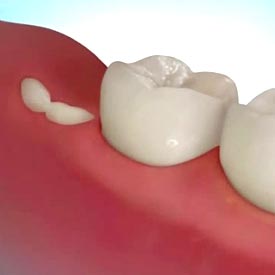The smart Trick of Wisdom Teeth Upper That Nobody is Talking About
Howeverthe a surgical procedure which involves preventing bone and making an incision in the gum tissue is occasionally required by removal of impacted wisdom teeth. Rarely, complications may include: Illness dry socket, or exposure of bone when the post-surgical blood clot is missing from the site of the surgical wound (socket) Infection at the socket from bacteria or trapped food particles Damage to neighboring teeth, nerves, jawbone or sinuses How you prepare Your physician can perform the procedure in the workplace.

You'll receive directions from dental practice staff or the hospital about also the day of your scheduled operation and what to do before the operation. Ask these questions: Can I need to make arrangements for someone to drive me home after the process When do I want to arrive at the dental clinic or hospital Can I need to stop eating meals or drinking fluids or equally (fast) If yes, when can I begin Can I choose my prescription drugs before the surgery If so, how long prior to the surgery can I take a dose Should I avoid any nonprescription drugs before the operation what you could expect During the process The dentist or oral surgeon can use one of three kinds of anesthesia, depending on the anticipated complexity of the wisdom tooth extraction and your comfort level.
Your dentist or dental surgeon administers local anesthesia with a couple of injections near the website of each extraction. Your dentist or surgeon will apply a material to your gums to numb them before you receive an injection. You're alert. Even though you'll feel movement and some pressure, you should not experience pain.

The Only Guide to Wisdom Teeth Only
Your dentist or oral surgeon gives you sedation anesthesia via an intravenous (IV) line in your arm. Your awareness is suppressed by sedation anesthesia during the procedure. You don't feel any pain and will have memory of this process. You'll also receive local anesthesia to numb your teeth. General anesthesia. In particular situations, you could be offered anesthesia.
Then you lose consciousness. Your surgical staff carefully monitors your medicine, breathing, fever , fluids and blood pressure. You'll experience no pain and don't have any memory of this procedure. Local anesthesia is given to assist with distress. Throughout wisdom tooth extraction, then your dentist or oral surgeon: Construction a incision in the best dentist for kids gum tissue to expose the tooth and bone Removes bone which blocks entry to check that the tooth root Divides the tooth into sections if it is easier to remove pieces Removes tooth Cleans the website of the removed tooth of any debris out of the tooth or bone Stitches the wound closed to encourage recovery, though this isn't always necessary Places gauze within the extraction site in order to control bleeding and also to aid a blood clot shape Following the process If you get sedation anesthesia or general anesthesia, you're taken into a recovery room after the process.
Follow your dentist's directions on: Bleeding, as you heal from the surgery. Some type of blood may happen the day following wisdom tooth look at this site removal. Attempt to avoid excessive spitting that you don't dislodge the blood clot in the socket. As directed by your dentist or dental surgeon, replace gauze within the extraction site.
You may have the ability to manage pain using a over-the-counter pain reliever, like acetaminophen (Tylenol, others), or even a prescription pain medication from your dentist or oral surgeon. If bone has been removed during the process, prescription pain medicine may be useful. Maintaining a cold pack from the jaw also may relieve pain.
The Facts About Wisdom Teeth Antibiotics Revealed
Use an ice pack as directed by your dentist or surgeon. Any swelling of your own lips improves in two or three days. Bruising can take several more days to resolve. Activity. After your surgery, plan to break for the rest of the day. However for no less than a week, resume normal activities the next day, avoid strenuous activity which may result in shedding the blood clot from the socket.

